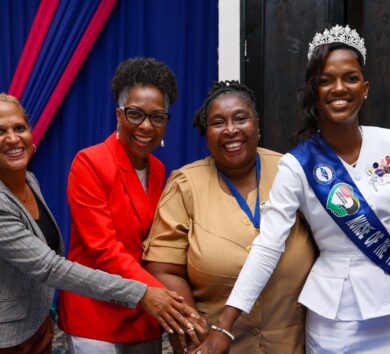

In the first part of this series, we explored what the legal position in Jamaica is when dividing marital property in the event that a couple have decided to get a divorce or cease to cohabitate.
In summary, the Property Rights of Spouses Act stipulates in Section 6 that the matrimonial home is presumed to be divided in equal share, with Section 7 allowing the parties to apply to the court for the property to be divided in other ways, with consideration for special circumstances.
As a follow-up, we will now handle the factors that the courts can consider when making a determination as to how a property is shared.
The court can hear applications not only concerning the family home, which is the property specifically referred to in sections 6 and 7, but is also equipped to divide all other marital properties.
Once a couple has ceased their cohabitation, received a nullity or dissolution of their marriage, then either party can initiate proceedings to divide up the property within one year of those conditions being met.
Section 14 (2) gives guidance as to the factors to be considered by the court and we will handle the main one specifically.

The legislation allows for the court to consider any direct or indirect contribution of the spouse to the property, concerning its acquisition, conservation, or improvement. Most significantly, this contribution can be financial or non-financial.
It is also important to note that it need not be all three factors (that is acquisition, conservation or improvement) that need to be present.
So for example, if only one spouse paid money towards the initial purchase of the house, that contribution is not considered more important than if another spouse paid to have it renovated or decorated. The application will have to outline the circumstances that the parties wish to be considered concerning how much weight is given to one versus the other. It is not just who paid to have it bought that will matter.
Contribution is also widely interpreted under these circumstances, in order to give the fairest chance for the parties to be considered.
These include caring for a relevant child or dependent of one of the spouses in the home, giving up a higher standard of living, providing support so one spouse can gain qualifications or expand their profession or performance of household duties.
The list also includes several other acts that may be considered as contribution. In fact, the legislation says explicitly that there will be no presumption that monetary contributions are of greater value than non-monetary contributions.
This is an important part of the legislation, as it sends a clear message that simply spending money will not outweigh the non-financial ways a spouse may assist in the general maintenance of the home/property.

As mentioned in Part One, the parties prior to marriage or cohabitation, can opt to make their own private agreement (prenuptial) as to the sharing of any property that they may have at the commencement of their relationship, or any future property that they may acquire during the marriage/cohabitation.
This agreement (prenup) can also be scrutinised by the courts, and if it is deemed just and fair, the court will honour said agreement.
However, in the absence of any prior agreement or prenup, a wide array of factors may be taken into consideration by court when deciding how the property is to be shared.






Comments